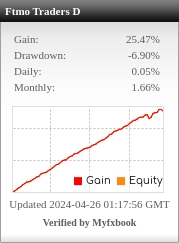
Title: The Rise of Proprietary Trading: What Investors Need to Know
In recent years, proprietary trading has been on the rise, and it has caught the attention of many investors. The concept of proprietary trading, also known as prop trading, involves trading the financial markets with the firm’s own money rather than on behalf of clients. This type of trading has gained popularity due to its potential for high profits and the flexibility it offers to traders. In this article, we will explore the rise of proprietary trading and what investors need to know about this trading strategy.
What is Proprietary Trading?
Proprietary trading refers to the practice of a firm or a trader using its own capital to trade financial instruments such as stocks, bonds, commodities, currencies, and derivatives. Unlike traditional trading, where brokers and traders execute trades on behalf of clients, prop trading involves trading for the firm’s own benefit. Prop traders use a variety of strategies such as high-frequency trading, algorithmic trading, and quantitative trading to generate profits.
The Rise of Proprietary Trading
The rise of proprietary trading can be attributed to several factors. The advancement in technology has made it easier for firms and traders to access the financial markets and execute trades at a faster pace. Additionally, the low-interest-rate environment has led to increased competition among firms, prompting them to explore alternative sources of revenue such as proprietary trading.
Moreover, the success stories of prop trading firms and individuals who have made substantial profits have attracted more attention to this trading style. With the potential for high returns, many investors are showing interest in proprietary trading as a means to diversify their investment portfolios.
Regulation and Risks of Proprietary Trading
While proprietary trading offers opportunities for high profits, it also comes with risks. Prop traders are exposed to market volatility and unforeseen events that can lead to significant losses. Furthermore, regulatory changes, such as the Volcker Rule in the United States, have imposed restrictions on proprietary trading by banks to prevent excessive risk-taking.
Investors need to be aware of the regulatory environment surrounding proprietary trading and the associated risks. Additionally, due diligence is essential when choosing a prop trading firm or individual trader to ensure they have a proven track record and adhere to risk management practices.
The Role of Proprietary Trading in Financial Markets
Proprietary trading plays a significant role in providing liquidity to the financial markets. Traders who engage in prop trading contribute to the efficient functioning of the markets by facilitating buy and sell orders. Additionally, the profits generated from prop trading can contribute to the overall profitability of financial firms, which in turn, can benefit investors and shareholders.
Furthermore, the innovation and technological advancements driven by prop trading can lead to improved market access and execution capabilities for all market participants. As the financial markets continue to evolve, proprietary trading is expected to play a vital role in shaping the future landscape of trading and investment.
Conclusion
In conclusion, the rise of proprietary trading has captured the interest of investors due to its potential for high returns and the impact it has on the financial markets. While proprietary trading offers opportunities for profit, investors need to be mindful of the associated risks and regulatory considerations. By staying informed and conducting thorough due diligence, investors can gain a better understanding of proprietary trading and its role in the ever-changing world of finance.
As proprietary trading continues to gain momentum, it will be interesting to see how it shapes the future of trading and investment strategies. With the right knowledge and understanding, investors can navigate the world of proprietary trading and make informed decisions about incorporating it into their investment portfolios.
By staying informed and understanding the risks and rewards associated with proprietary trading, investors can make well-informed decisions about incorporating it into their investment portfolios. As the financial markets continue to evolve, proprietary trading is expected to play a vital role in shaping the future landscape of trading and investment.



